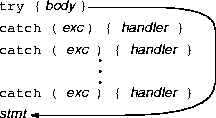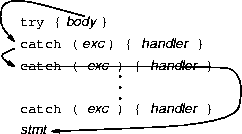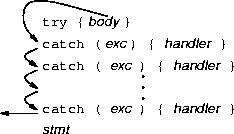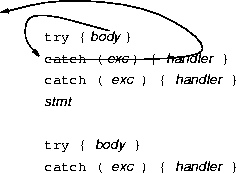int main () { int f() { int g() {
f() g() if (b) g()
} } }
main() is called, and main() calls f().

f() then calls g().

f() and g() return.

main() returns and the program ends.



